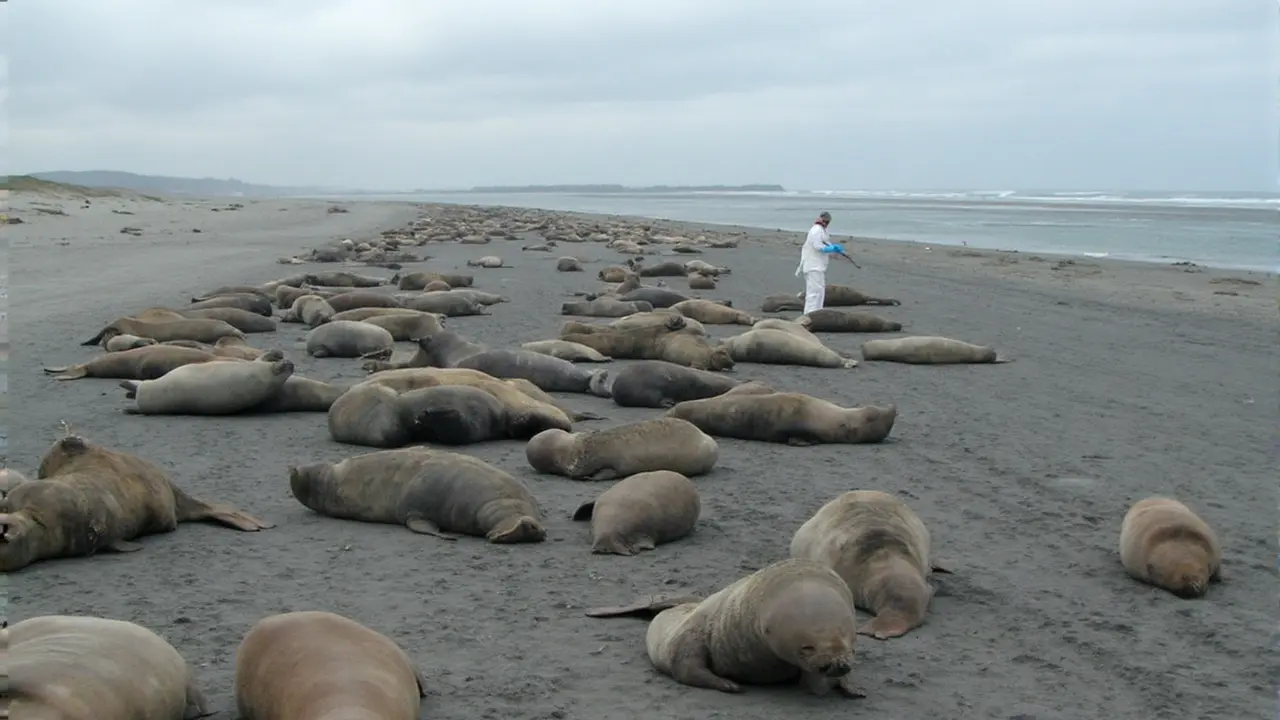Catastrophic Bird Flu Outbreak Hits Elephant Seals
Things couldn’t look much worse for southern elephant seals on Argentina’s coast. The 2023 avian flu outbreak didn’t just dent the numbers—it almost obliterated an entire generation. Scientists returning in 2024 found barely a third of the usual mothers hauling out to breed, with the number of reproductive females crashing 67% in just two years. To put it simply: this is the biggest hit these colonies have taken in recorded history.
It’s not just a matter of having fewer seals lounging on the beach. These losses reached deep into the population’s future. Elephant seals give birth to a single pup per year, and they grow up slowly. When almost all the newborn generation is wiped out in one outbreak, it’s like erasing seasons of potential recovery. Scientists from WCS Argentina, CONICET, and UC Davis warn that, depending on whether mainly pups or breeding adults got hit hardest, the path back might stretch from a few decades to as long as 100 years.
Why the Road to Recovery Will Be So Long
Why is the timeline for a possible comeback so grim? Elephant seals have a slow life cycle and complex social structure. Once the breeding females are gone, it takes ages for the population to rebuild—not just in numbers, but in the crucial web of relationships and behaviors needed for survival. A study in Marine Mammal Science pulled in decades of careful monitoring and tried to predict what’s next. If the flu mostly hit this year’s pups, the damage is harsh but fixable. But when adult females die—especially those raising pups and holding groups together—the hole left behind is huge.
There’s another bad twist: if the virus returns, or stays around in the environment, recovery slows down even more. Adult female mortality is the game-changer. These older females are the backbone of the colony—they know the breeding sites, lead younger seals, and raise the next generation. Lose them, and the skills and knowledge they carry vanish too. That’s why some predictions don’t see a full bounce-back until the middle of the next century.
This isn’t just sad news for marine biologists. Elephant seals play a key role in balancing the South Atlantic marine ecosystem. Losing them—or even having populations badly depleted for a century—means changes for everything from fish stocks to predator-prey relationships. Scientists are pushing hard for close monitoring to track outbreaks, spot early warnings, and limit further losses before things spiral any further.










